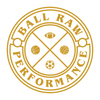Enhancing Sports Performance Training with ADHD: Tips for Success

Introduction:
Attention Deficit Hyperactivity Disorder (ADHD) affects a significant number of children in the United States, impacting their ability to focus, concentrate, and control impulses. This can pose challenges in various aspects of life, including sports performance training. In this blog post, we will explore the connection between ADHD and sports performance training, and provide valuable tips for athletes, coaches, and trainers who work with individuals with ADHD.
ADHD and Sports Performance Training: Understanding the Connection
ADHD can disrupt an individual's ability to maintain focus during training sessions. Distractions, both internal and external, can hinder their progress and make it difficult to achieve optimal results. Furthermore, struggles with organization and planning may result in an inconsistent training schedule, affecting their ability to reach their athletic goals. Impulsivity, a common symptom of ADHD, can also lead to risky behaviors during training, potentially causing setbacks or injuries.
Tips for Athletes, Coaches, and Trainers:
1. Establish a Consistent Routine: Create a structured training schedule that incorporates warm-ups, workouts, and cooldowns. Consistency is key for individuals with ADHD, as it helps them stay on track and reduces the likelihood of missed sessions.
2. Provide Clear Instructions: When explaining exercises or drills, use concise and straightforward instructions. Avoid overwhelming individuals with excessive information and supplement your guidance with visual aids or demonstrations.
3. Minimize Distractions: Set up a training environment that minimizes distractions such as noise or visual stimuli. This creates a conducive atmosphere for individuals with ADHD to maintain focus and concentration.
4. Break Tasks into Manageable Steps: Complex exercises or drills can be overwhelming for individuals with ADHD. Break them down into smaller, manageable steps to enhance comprehension and execution.
5. Offer Positive Reinforcement: Individuals with ADHD respond well to positive reinforcement. Provide praise and rewards to acknowledge their progress, building their confidence and motivation to continue training.
Conclusion:
While ADHD may present challenges in sports performance training, it doesn't have to be a barrier to success. By implementing the right strategies and offering appropriate support, individuals with ADHD can excel in their athletic pursuits. Establishing a consistent routine, providing clear instructions, minimizing distractions, breaking tasks into manageable steps, and offering positive reinforcement are valuable tools for athletes, coaches, and trainers working with individuals with ADHD.
Ready to take your training to the next level? Contact Ball Raw Performance today for personalized training and support!



Dejar un comentario